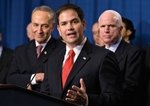Profession
Case pits anti-bias law against doctors' rights
■ A column analyzing the impact of recent court decisions on physicians
By Amy Lynn Sorrel covered legal, antitrust, fraud and liability issues from 2005 to 2010, and has also written the "In the Courts" column. — Posted Oct. 13, 2008.
- WITH THIS STORY:
- » Related content
Physicians have the same freedom of religion and speech rights guaranteed every citizen under the First Amendment. But a recent California Supreme Court ruling suggests that doctors may have to check some of their personal beliefs at the exam room door.
The court unanimously concluded that doctors' religious rights did not exempt them from complying with a state law prohibiting discrimination based on sexual orientation, "even if compliance poses an incidental conflict with [doctors'] religious beliefs."
There are other ways for doctors to accommodate their religious beliefs in the treatment setting as long as they don't infringe on patient civil rights, the court said.
The case involved a lesbian patient who sought infertility treatment from North Coast Women's Care Medical Group in 1999. Two of the clinic's doctors declined to perform intrauterine insemination on Guadalupe T. Benitez, saying their religious beliefs prevented them from causing the pregnancy of an unmarried woman. Instead, they referred Benitez to an outside physician.
Benitez sued the clinic in 2001, alleging that the doctors discriminated against her based on her sexual orientation, in violation of the state's anti-discrimination law. But the doctors countered that their actions were based on Benitez's marital status and, nevertheless, were protected under the free exercise clauses of the federal and state constitutions.
Justices rejected that defense. They found the doctors' refusal to treat Benitez violated California's Unruh Civil Rights Act, which prohibits any business -- including medical groups -- from discriminating based on sex, race, color, religion, ancestry, national origin, disability, medical condition or sexual orientation.
In its analysis, the court relied on a 1990 U.S. Supreme Court precedent, Employment Division v. Smith. The decision established that religious objectors have no constitutional exemption from following any "valid and neutral law of general applicability" -- in other words, any law that was not aimed at restricting or promoting religious beliefs, and that applies equally across the board.
"Presumably, for [the defendant doctors] to comply with the [Unruh Act's] prohibition against sexual orientation discrimination would substantially burden their religious beliefs. Yet that burden is insufficient to allow them to engage in discrimination," the court said. The law furthers California's compelling interest in ensuring full and equal access to care, "and there are no less restrictive means for the state to achieve that goal."
To avoid conflicts with personal beliefs, justices said North Coast doctors can refuse to perform a particular service for a patient or refer patients to another practice doctor without the same religious objections.
The ruling allows Benitez to pursue her discrimination case in a trial court. There, doctors can argue their denial of treatment was unrelated to Benitz's sexual orientation, the high court said. At press time in late September, no trial date had been set in San Diego County Superior Court. North Coast also was contemplating an appeal to the U.S. Supreme Court.
The case had the medical community and civil rights advocates weighing in on both sides. Experts say the decision is consistent with federal and state precedents on the interplay between individual religious rights and anti-discrimination laws. But it may be among the first to address sexual orientation discrimination in a medical context. That's partly because California's civil rights law delineates sexual orientation.
But the court has addressed the issue before. In the Benitez opinion, the high court referenced a 2004 ruling. Justices, also adhering to the Smith test, rejected arguments that constitutional protections exempted Catholic Charities from complying with a state law requiring employers that provide prescription drug insurance coverage to include contraceptives. The court concluded that the Women's Contraception Equity Act served a compelling governmental interest in eliminating gender discrimination in the provision of health benefits.
"What the [Benitez] opinion says is, no physician would be forced to perform services" against his or her conscience, said Elizabeth Pendo, a professor in discrimination law and bioethics at Saint Louis University. "The court is affirming there is no right to discriminate [on religious grounds] ... and is giving an indication of how it's going to balance those interests."
American Medical Association ethical policy says physicians may refuse to enter a physician-patient relationship when "a specific treatment sought by an individual is incompatible with the physician's personal, religious or moral beliefs." Doctors cannot turn patients away based on race, gender, sexual orientation, gender identity or any other criteria that would constitute invidious discrimination, the policy states.
Doctors have the right to turn away patients for various reasons, such as insurance status. State and federal conscience laws also let doctors refuse to perform a particular procedure, most commonly abortion-related services. A handful of states have more comprehensive laws.
Jennifer C. Pizer, Benitez's attorney, said doctors aren't subject to more rigorous rules under California's civil rights law; rather they face the same standard regulating any other business or professional.
"Civil rights law doesn't tell you what to do, just that you can't be discriminatory," said Pizer, senior counsel at Lambda Legal, a group representing gay, lesbian, bisexual and transgender individuals. The organization filed a friend-of-the-court brief on behalf of the Gay & Lesbian Medical Assn. "All one needs to do is substitute race for sexual orientation. It's that much more important [such laws] apply in the medical setting because of what's at stake when patients don't have access to quality care."
A stricter review
The decision didn't sit well with some doctors and legal experts, who say the court gave short shrift to the idea of "balancing" doctors' religious rights.
Because the Smith decision essentially eroded religious protections, some states have boosted their laws, and some state courts have interpreted state constitutions as providing stronger safeguards. But the California Supreme Court in Benitez, as well as the Catholic Charities case and others before it, refused to go that route. Doing so would have required a more rigorous analysis -- known as strict scrutiny -- of the competing state and individual interests at stake, a test the court summarily concluded the doctors would not pass.
The court found that the Unruh Act was aimed at ensuring access to care but failed to "focus on the real magnitude of the state's interest or any of the less restrictive alternatives the state could employ to further the state's interest without burdening doctors' religious rights," said Alan E. Brownstein, a professor of constitutional law and religion at the University of California, Davis. "Telling a physician who received training in providing a complex procedure to avoid his training ... or that you can't organize a partnership with people who believe the same thing you do strikes me as an enormous burden."
The court's answer struck the Christian Medical & Dental Assns. as unsatisfactory and one likely to decrease access to care further if doctors are forced to choose between their practice and medical ethical standards. The organization filed a friend-of-the-court brief in the case, with Americans United for Life.
Instead of balancing doctors' rights, the court stripped them away, said Gene Rudd, MD, CMDA senior vice president.
"If you want to take doctors' rights away and make them second-class citizens, it's very easy to start taking them away from anybody else," he said. "There are other ways of providing [patients] legal access [to care]. But if we force doctors to do something they believe is morally objectionable, we demean the sacred doctor-patient relationship to a business transaction and destroy the trust."
Many doctors have voiced concerns over pressures to perform certain procedures, most often abortion. In response, the Health & Human Services Dept. in August released a proposed rule strengthening enforcement of federal conscience protections in that area.
State and federal regulations generally outline exceptions only for emergency circumstances, whereas the treatment Benitez sought was purely elective, said North Coast's attorney Kenneth R. Pedroza. The clinic arranged a referral for Benitez and helped defray the extra costs.
That might work for a group or urban practice, but not necessarily a rural or solo doctor. Justice Marvin R. Baxter suggested as much in a concurring opinion, saying the burden imposed on a solo practitioner's religious freedom could trump anti-discrimination principles.
It's likely that the California Supreme Court has not heard the end of the debate.
Amy Lynn Sorrel covered legal, antitrust, fraud and liability issues from 2005 to 2010, and has also written the "In the Courts" column.
 Subscribe to Email Alert
Subscribe to Email Alert








